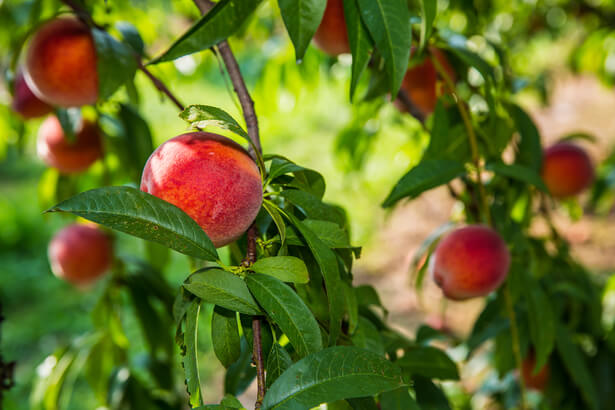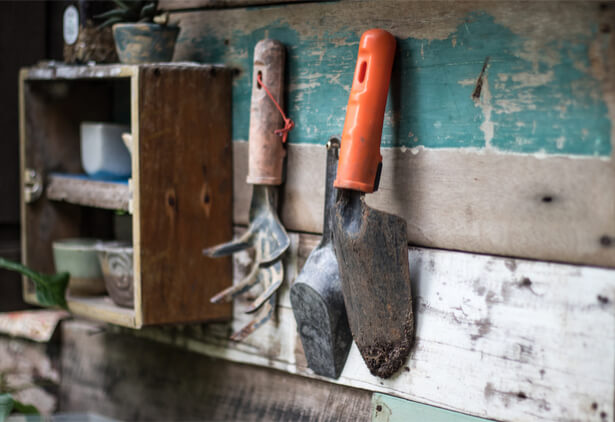It’s back to school for everyone, including gardeners! The most seasoned warn novices: in September in the garden, you must not let your guard down. Even if the actions have less impact than the work done in the spring, they are still important. And there are also the last fruits and vegetables of the summer to harvest…
Here we are already in September! Summer is slowly coming to an end… What to plant, what to sow in September, what to do in the vegetable garden and in the garden? Here are some maintenance tips and gardening actions to apply right away. Of course, they should be adapted according to your geographical location.
In the garden in September: what to plant and what maintenance?
The weather has been very hot this summer, with high, even scorching temperatures.
Water, especially if it is very hot
Even if at the end of summer, temperatures are generally milder in metropolitan France, keep a close eye on the water needs of your vegetables, especially leafy greens (lettuce, chicory, cabbage, etc.). The same goes for turnips, kohlrabi and radishes: the lack of water could make them fibrous, hard and spicy.
Pick the fruit vegetables
Zucchini, squash, melons, cucumbers and green beans should be picked as soon as they are ripe. This will allow the plant to continue to flower well and will provide other tasty fruits.
Squash can be used as a base for soups, but can also be stuffed.
Protect melons and pumpkins from the groundotherwise they risk rotting. To do this, place a flat stone or tile underneath to avoid direct contact with the earth.
The vegetable garden: what to sow in September?
In September, you can sow carrots, spinach, turnips, onions, radishes, lettuce, lamb’s lettuce, rocket, broad beans, leeks… Don’t forget the aromatic plants such as chervil, coriander or parsley.
And what about the harvest?
So take advantage of the last tomatoes, eggplants, potatoes… Know that some vegetables keep very well in place in the ground in winter. This is the case for beets, carrots, turnips, or even black radishes.
Work in the orchard in September
In September, fruits need sun more than ever. To ensure they benefit from the rays, don’t hesitate to remove the few leaves that shade them.
Proceed to pick all the ripe fruits, and there are many: strawberries, raspberries, blackberries, peaches, nectarines, plums, apples and pears, hazelnuts, grapes, rhubarb…

Fishing in the orchard in an organic garden.
Read also: In September, harvest the pears
Little tips to avoid big surprises
- It is important to continue to add fertilizer to your plantsand this until the month of October.
- Never leave diseased fruit on the ground. or mummifiedbecause they could spread the disease to subsequent fruits. It is better to destroy them (by fire or burial, but far from orchards). Avoid putting them in compost, because the fermentation and heat released are not sufficient to completely eliminate the inoculum carried by the diseased fruits.
Gardening in September: think about winter already, whitewash!
To suffocate the overwintering forms of pests which take refuge in the cracks of trees (scale insects, aphids, codling moths, weevils, etc.) with a whitewashA clay whitewash nourishes the bark and smothers pests.
If necessary, mix 80% clay to 20% Bordeaux mixture in water then add vegetable oil (1 liter for 5 liters) to prevent the whitewash from cracking.
Read also: Make a healing putty for trees and shrubs
The essential gestures
Winter is not here yet, but it’s better to be prepared! So in September, prepare your garden to get through the winter in peace:
- disinfect and store your tools to prevent rust. Tip: immerse the metal part in compost all winter, rust will not settle there.

Take care of your gardening tools.
- drain the buried watering to avoid having to see the damage in the event of frost this winter;
- collect the dead leaves which start to fall, direction the compost heap!
- It’s time to prepare the ground for planting the hedges.
The lawn in September
If your lawn has suffered from the heat in July or August, water it, if possible in the morning or evening. September is a very good month to sow your lawn, either to strengthen it or for partial renovation.
Read also: Which lawn requires the least watering?
It is still possible to do selective treatment if you have a lot of weeds in your lawn that you have not been able to manage with natural methods.
Read also
Start your organic vegetable garden: practical advice
consoGlobe also recommends…
Source: www.consoglobe.com


